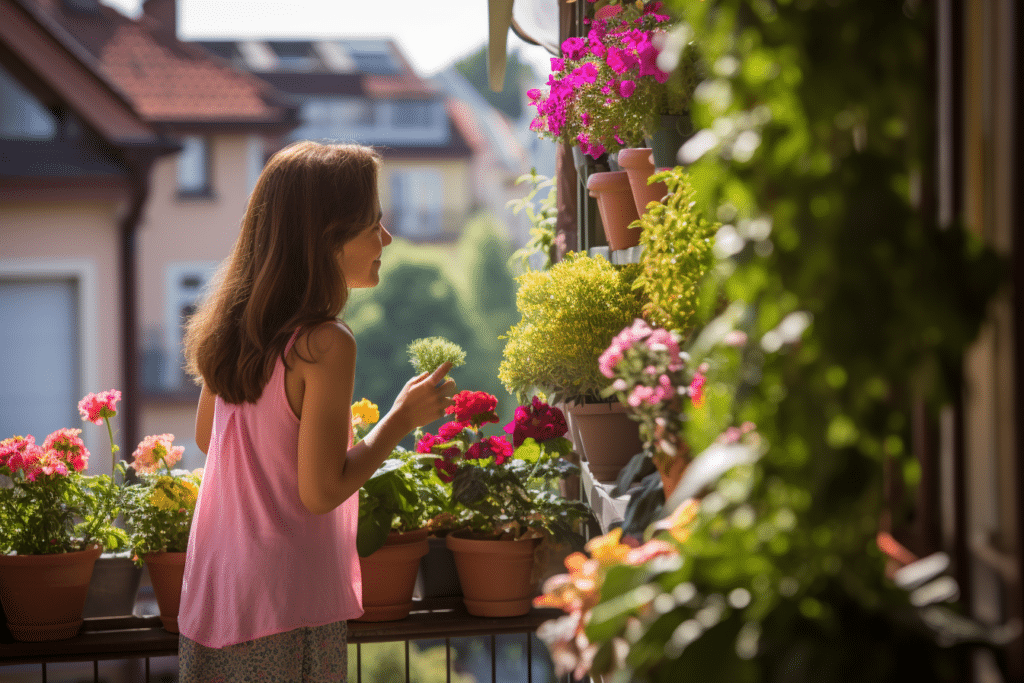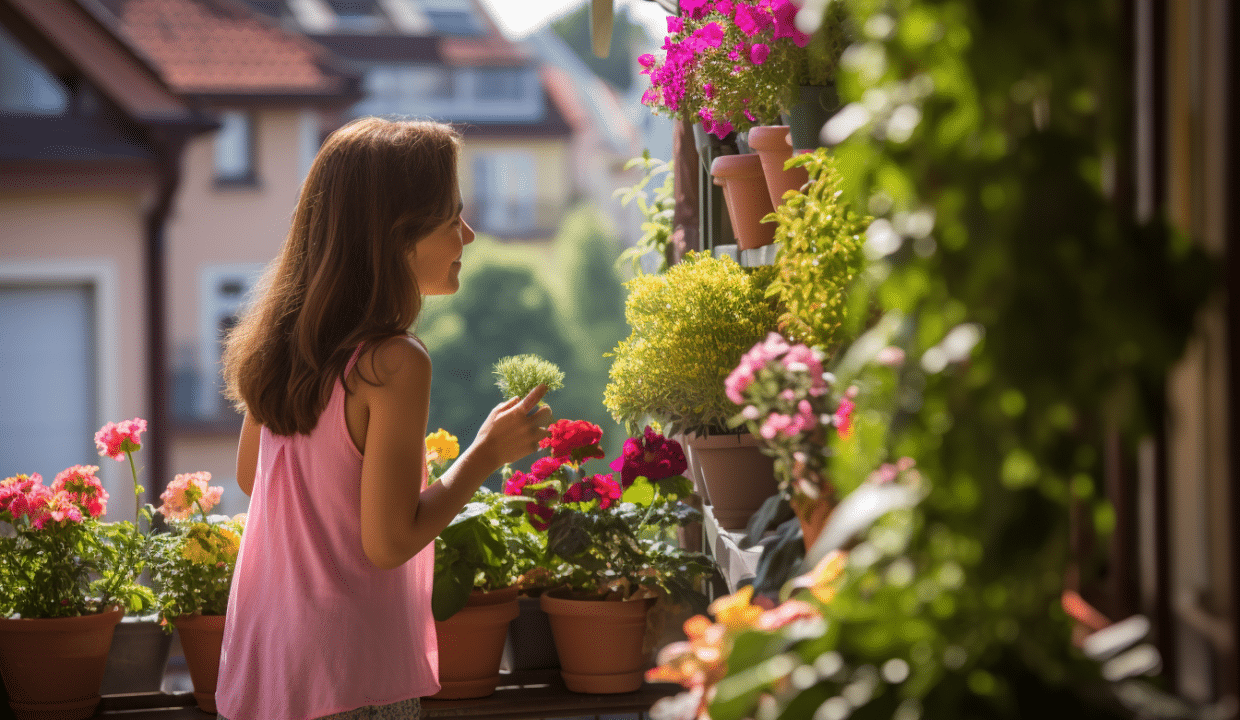Apartment Gardening Ideas: How to Grow Your Plants and Herbs in a Small Space
Do you love plants but live in a small apartment? Would you like to grow fresh herbs and vegetables without a large backyard? If so, you are not alone. Many people who live in urban areas face the same challenge of limited space and resources. But don’t worry; there are ways to create a beautiful and productive apartment garden with just a few containers, some potting soil, and some seeds or plants. In this blog post, we will share some tips and ideas on starting and maintaining your own small space herb garden and some easy herbs to grow that will add flavor and nutrition to your meals.

How to Start a Small Space Herb Garden
The first step to starting your own small space herb garden is to choose a container that suits your space and your plants. You can use any container with drainage holes, such as pots, planters, window boxes, hanging baskets, or recycled items like cans or bottles. The container should be at least 6 inches deep, preferably 12 inches deep, for herbs with taproots like parsley or cilantro. The container should also be wide enough to accommodate several plants or use multiple containers for different herbs.
Property for sale in Hurghada
The next step is to fill your container with a good quality potting mix that is well-draining and rich in organic matter. You can buy ready-made potting mix from a garden center or make your own by mixing equal parts of peat moss, perlite, and compost. Avoid using garden soil as it can be too heavy and compacted for containers and may contain diseases or pests.
The third step is to choose the herbs you want to grow in your small space herb garden. Many herbs can thrive in containers, but some are easier than others. Here are some of the best herbs for beginners:
- Mint: Mint is a fast-growing and hardy herb that can tolerate partial shade and moist soil. It has a refreshing flavor and aroma that can be used for teas, salads, sauces, desserts, and more. Mint can also help with digestion and headaches. However, mint can be invasive and take over the container, so it is best to plant it in a separate pot or use a barrier to prevent it from spreading.
Real estate for sale in Hurghada
- Chives: Chives are another easy-to-grow herb that can tolerate various conditions. They have a mild onion flavor that can enhance soups, salads, eggs, cheese, and more. Chives can also repel pests like aphids and spider mites. Chives produce purple flowers that are edible and attractive.
- Parsley: Parsley is a versatile herb that can grow in full sun or partial shade. It has a fresh and slightly bitter flavor that can complement many dishes, especially Mediterranean cuisine. Parsley is also rich in vitamin C and iron and can help with bad breath. Parsley can be grown from seeds or transplants, but seeds may take longer to germinate.
- Lavender: Lavender is a beautiful and fragrant herb that can grow in full sun and well-drained soil. It has a sweet and floral flavor that can be used for teas, lemonades, cakes, cookies, and more. Lavender can also help with relaxation, insomnia, anxiety, and headaches. Lavender can be grown from seeds or cuttings, but cuttings may root faster.
- Basil: Basil is a popular herb that can grow in full sun and moist soil. It has a spicy and aromatic flavor that can be used for pesto, pizza, pasta, salads, and more. Basil is also rich in antioxidants and anti-inflammatory properties and can help with digestion and infections. Basil can be grown from seeds or transplants, but transplants may produce faster.
How to Care for Your Small Space Herb Garden
Once you have planted your herbs in your container, you must provide primary care to keep them healthy and productive.
Apartment for sale in Red sea
- Watering: Herbs need regular watering to prevent them from wilting or drying out. However, overwatering can cause root rot or fungal diseases. The best way to water your herbs is to check the soil moisture with your finger before watering. If the top inch of the soil feels dry, water thoroughly until the excess water drains out of the holes. Avoid wetting the leaves as this can cause diseases or sunburn.
- Fertilizing: Herbs need some fertilizing to promote their growth and flavor. However, too much fertilizing can cause them to become leggy or lose their aroma. The best way to fertilize your herbs is to use an organic fertilizer that is low in nitrogen and high in phosphorus and potassium. According to the package directions, you can apply the fertilizer monthly during the growing season.
- Pruning: Herbs need regular pruning to keep them busy and productive. Pruning also helps to prevent flowering or bolting, which can reduce the flavor and quality of the herbs. The best way to prune your herbs is to cut off the top one-third of the stems with scissors or a knife. You can use the pruned parts for cooking or drying. Prune your herbs whenever they look overgrown or start to flower.
- Harvesting: Herbs can be harvested any time during the growing season, but the best time is in the morning when the oils are most concentrated. You can gather your herbs by pinching off the leaves or stems with your fingers or scissors. You can use the fresh herbs immediately or store them in the refrigerator for a few days. You can also dry or freeze your herbs for more extended storage.
Apartment for sale in Egypt
Enjoy Your Small Space Herb Garden
Apartment for sale in Hurghada
Growing your plants and herbs in a small space is fun, rewarding, and beneficial for your health and well-being. You can enjoy the fresh and flavorful herbs in your cooking and the beauty and fragrance of your apartment garden. Growing organic and sustainable food can save money and reduce waste. With these tips and ideas, you can start your small space herb garden today and enjoy the fruits of your labor. Happy gardening!
Check out our new project.
Balkan Beach Resort





